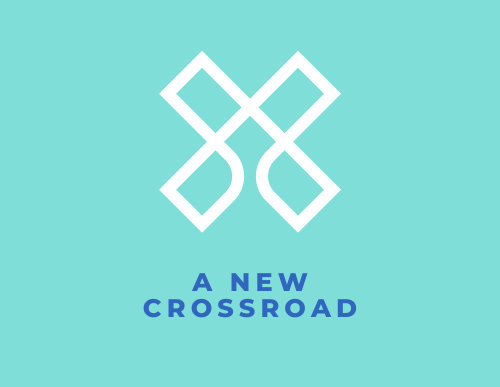Understanding PTSD Treatment Options
Importance of Seeking Treatment
Post-traumatic stress disorder (PTSD) can significantly impact an individual’s quality of life, but effective treatment can help regain a sense of control. Seeking PTSD treatment is crucial not only for managing symptoms but also for improving overall mental health and well-being. Our priority is to provide comprehensive care tailored to the specific needs of each individual.
Untreated PTSD can lead to various complications, including depression, anxiety, substance abuse, and difficulties in personal and professional relationships. Timely intervention can prevent these complications, enhancing life satisfaction. Long-term recovery is achievable through a combination of therapies and support systems.
Overview of PTSD Treatment Methods
Understanding the available PTSD treatment options is essential for making informed decisions about care. Treatments typically involve a blend of psychotherapy and medications.
Talk Therapy (Psychotherapy)
Talk therapy, also known as psychotherapy, is the cornerstone of PTSD treatment (Mayo Clinic). According to experts from the U.S. Department of Veterans Affairs and Department of Defense, psychotherapy is the most effective approach for treating PTSD due to fewer adverse side effects and patient preference (Harvard Health Publishing). Several types of talk therapy may be used, including:
| Type of Therapy | Description |
|---|---|
| Cognitive Behavioral Therapy (CBT) | Helps patients identify and change negative thought patterns. |
| Prolonged Exposure Therapy (PE) | Encourages patients to safely face what they find frightening. |
| Eye Movement Desensitization and Reprocessing (EMDR) | Involves processing traumatic memories through guided eye movements. |
Trauma-focused therapies such as Prolonged Exposure are considered the gold standard, benefiting millions of adults in the U.S. (RTI). Visit our sections on anxiety treatment and depression treatment for complementary approaches.
Medications
Medications may also be prescribed to help manage PTSD symptoms. While psychotherapy remains the preferred method due to its effectiveness and relatively lower risk of side effects, medications can be beneficial for some individuals.
In summary, the effective combination of psychotherapy and medications, supported by a network of care that may include group therapy and support as well as Complementary and Integrative Health (CIH), can significantly improve the lives of those affected by PTSD. Understanding these options empowers individuals to take proactive steps toward their recovery. For additional insight, check out our articles on adhd treatment, bipolar disorder treatment, and alcohol abuse treatment.
Psychotherapy for PTSD
Psychotherapy, commonly known as talk therapy, is a cornerstone in the treatment of PTSD. As a method that focuses on understanding and processing trauma, it offers significant benefits to those affected.
Types of Talk Therapy
There are several types of psychotherapy that we use to treat PTSD. According to Mayo Clinic, these include:
- Cognitive Processing Therapy (CPT): Helps patients evaluate and reframe upsetting thoughts related to traumatic events.
- Prolonged Exposure Therapy (PE): Involves repeated exposure to trauma memories and triggers in a controlled setting to reduce their impact.
- Mindfulness-Based Stress Reduction (MBSR): Incorporates mindfulness practices to help patients stay anchored in the present moment, reducing stress responses.
- Eye Movement Desensitization and Reprocessing (EMDR): Uses guided eye movements to help patients process and integrate traumatic memories.
These modes of therapy are tailored to meet the specific needs of individuals, offering them varied methods to address and mitigate PTSD symptoms.
Effectiveness of Psychotherapy
Psychotherapy is often recommended over medications due to its efficacy and fewer side effects (Harvard Health Publishing). It is also preferred by patients for long-term recovery. The U.S. Department of Veterans Affairs highlights trauma-focused therapies like Prolonged Exposure as the gold standard for PTSD patients, benefiting more than 15 million adults in the U.S. (RTI).
Studies indicate that cognitive processing therapy and prolonged exposure therapy effectively reduce symptoms in individuals with PTSD. The benefits of these therapies include:
| Therapy Type | Effectiveness (%) |
|---|---|
| Cognitive Processing Therapy (CPT) | 70% |
| Prolonged Exposure Therapy (PE) | 75% |
| Mindfulness-Based Stress Reduction (MBSR) | 65% |
| Eye Movement Desensitization and Reprocessing (EMDR) | 80% |
Consistent with research from Harvard Health Publishing, these therapies teach patients how to manage and reframe their traumatic experiences, leading to significant improvements in mental health.
Mindfulness-based approaches, though newer, are also gaining acceptance, with VA studies showing MBSR to outperform various controls in reducing PTSD symptoms. We support the inclusion of these practices due to their positive effects and integration into broader treatment plans.
For those seeking comprehensive care, including those with co-existing conditions such as anxiety and depression, psychotherapy offers a solid foundation. For more in-depth support options, please refer to our pages on anxiety treatment and depression treatment.
We are committed to providing the best and most effective treatment options for those affected by PTSD.
Medications for PTSD
Medications can be an effective strategy for managing symptoms of PTSD, offering potential relief by targeting specific aspects such as anxiety, sleep disturbances, and depression. Here, we explore commonly prescribed medications and considerations for their use.
Considerations for Medication Use
When considering medication for PTSD, several factors need to be taken into account, including potential side effects, individual differences in response, and the presence of comorbid conditions such as depression and anxiety. Our team at A New Crossroad prioritizes these considerations to tailor the best treatment approach for each individual.
Potential side effects may include:
- Nausea
- Dizziness
- Sleep disturbances
- Weight gain
Moreover, while medications can offer significant relief, they are usually most effective when combined with other treatments. For comprehensive care, we often integrate medications with psychotherapy, group therapy, and other alternative practices. For instance, adding cognitive behavioral therapy (CBT) can enhance the effectiveness of medication by addressing thought patterns that contribute to PTSD symptoms.
Long-term use of certain medications like prazosin may require careful monitoring, especially given weak evidence of its efficacy in reducing nightmares (Harvard Health Publishing). Additionally, although emerging therapies such as psychedelic treatments show promise, there remains insufficient evidence for their routine use. For more information on novel and complementary treatments, see our section on emerging therapies.
We also discuss the use of medications in treating other mental health conditions like anxiety and addiction issues including opioid addiction treatment, alcohol abuse, and more.
Choosing the right treatment for PTSD is a nuanced process and should be handled under medical supervision, ensuring the safety and well-being of the patient. Always consult healthcare providers for personalized treatment plans.
Group Therapy and Support
In our comprehensive strategy for the treatment of PTSD, group therapy plays a pivotal role. Connecting with others who are navigating similar experiences can be profoundly healing and supportive.
Benefits of Group Therapy
Group therapy offers a unique blend of support and understanding that is difficult to replicate in individual therapy sessions. By participating in group therapy, individuals gain the following benefits:
- Shared Experiences: Participants realize they are not alone in their struggles. This sense of shared experience can be incredibly validating and healing.
- Supportive Environment: A supportive and non-judgmental community helps individuals feel safe to share their thoughts and emotions, which can be crucial for mental health recovery.
- Learning Opportunities: Group members often learn from each other’s coping strategies and experiences. This collective learning can introduce new perspectives and techniques for managing PTSD.
- Accountability: Being part of a group encourages regular attendance and commitment to therapy sessions.
Connection Through Shared Experiences
Connecting through shared experiences is a core component of group therapy, particularly for PTSD treatment. When individuals hear others articulate similar feelings and challenges, it can be profoundly reassuring. This connection can foster a deeper level of trust and openness within the group, enhancing the therapeutic process.
| Benefit | Description |
|---|---|
| Shared Experiences | Realizing others have similar struggles |
| Supportive Environment | Feeling safe and non-judged |
| Learning Opportunities | Gaining new coping strategies |
| Accountability | Encouraging consistent therapy participation |
Research from Mayo Clinic supports the value of group therapy for individuals with PTSD, emphasizing the importance of a shared and supportive environment.
For a comprehensive approach to mental health and addiction treatment, consider exploring our various treatment options, including anxiety treatment, bipolar disorder treatment, and depression treatment.
Our sessions are structured to ensure that every individual feels heard and supported, promoting a community of healing and resilience. By engaging in group therapy, individuals can build strong, supportive networks that are essential for long-term recovery.
Complementary and Integrative Health (CIH) for PTSD
Incorporating Alternative Practices
At A New Crossroad, we believe in addressing PTSD through a comprehensive and holistic approach. Complementary and integrative health (CIH) practices have gained traction as viable options for managing PTSD symptoms. These methods include a variety of alternative practices designed to work alongside traditional treatments.
Among the most widely recognized complementary and alternative medicine (CAM) practices are:
- Acupuncture
- Moxibustion
- Chinese Herbal Medicines
- Meditation
- Yoga
- Deep-Breathing Exercises
- Progressive Relaxation
- Tai Chi
According to a study by PubMed Central, these interventions have been actively used for PTSD treatment.
CAM practices are not only popular but also increasingly accepted among different patient demographics. For instance, a nationally representative sample revealed that 39% of individuals with PTSD utilized CIH in the past year to address emotional and mental health issues (VA PTSD: Complementary and Integrative Health for PTSD).
VA’s Support for CAM Therapies
The Department of Veterans Affairs (VA) has been a strong proponent of CIH practices for PTSD treatment. Most VA mental health programs now include various CIH methods, reflecting their effectiveness and growing acceptance. The VA offers a range of CIH practices for PTSD, which include:
- Acupuncture
- Biofeedback
- Clinical Hypnosis
- Guided Imagery
- Massage Therapy
- Meditation
- Tai Chi/Qigong
- Yoga
These methods are supported by internal policies that integrate them into veterans’ care plans, demonstrating the VA’s commitment to holistic treatment strategies. Additionally, the VA encourages ongoing research to further validate and understand the benefits of CIH for PTSD, informing future clinical guidelines and best practices (VA PTSD: Complementary and Integrative Health for PTSD).
| CIH Practice | Description |
|---|---|
| Acupuncture | Involves inserting needles into specific points on the body to alleviate pain and improve mental health. |
| Biofeedback | Uses sensors to provide real-time feedback on physiological functions, helping individuals control bodily processes. |
| Clinical Hypnosis | Utilizes guided relaxation and intense concentration to achieve a heightened state of awareness. |
| Guided Imagery | Involves using the imagination to visualize calm and peaceful scenarios, aiding in relaxation and emotional healing. |
| Massage Therapy | Manipulates muscles and tissues to relieve tension and promote relaxation. |
| Meditation | Focuses on mindfulness and breathing techniques to promote mental clarity and reduce stress. |
| Tai Chi/Qigong | Combines gentle physical exercise and stretching with mindfulness to improve health and relaxation. |
| Yoga | Incorporates physical postures, breath control, and meditation to enhance physical and mental well-being. |
We encourage individuals to explore these alternative practices as part of a comprehensive PTSD treatment plan. By incorporating CIH methods, we can address various aspects of mental health, providing a more rounded approach to healing.
For those seeking mental health and addiction treatment, A New Crossroad is here to help. Explore our offerings in anxiety treatment, depression treatment, and other related areas to find out how we can support your journey to wellness.





